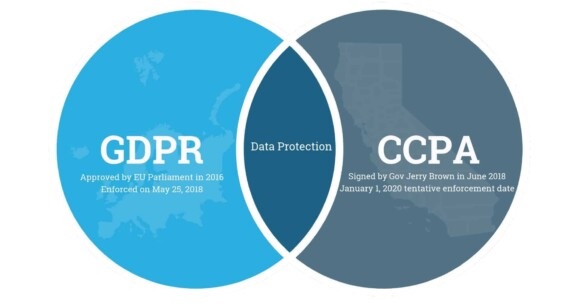Laws like the General Data Protection Regulation (GDPR) and the California Consumer Privacy Act (CCPA) have been developed to safeguard consumer privacy in a time when data breaches and abuse of personal information are growingly frequent. On the other hand, non-compliance with these rules may result in substantial fines going beyond mere financial loss. Businesses who handle personal data must first understand the ramifications of GDPR vs CCPA. This article explores the fines connected to non-compliance and the need of following these rules.
What Is GDPR and Who Does It Apply To?
Overview of GDPR
Enacted by the European Union (EU) in 2018, the GDPR is among the strictest privacy rules in use worldwide. It covers any company, wherever, that handles personal data of EU citizens. The rules are meant to offer people greater control over their personal information and guarantee companies treat this data sensibly. Companies which disobey GDPR risk substantial fines, hence GDPR and CCPA compliance is not just a legal need but also a strategic one.
Penalties Under GDPR
Ignoring GDPR may cost you big fees. Whichever is higher—that is, either 20 million euros or 4% of the company’s worldwide yearly turnover—the most severe sanctions can reach. The kind, degree, and length of the violation as well as the sensitivity of the data engaged determine the sanctions. Emphasizing the need of GDPR compliance, these sanctions are meant to be a major deterrence.
What Is CCPA and How Does It Differ from GDPR?
Overview of CCPA
Though it emphasizes the privacy rights of California citizens, the GDPR and the CCPA, passed in California, USA, are comparable. Companies have to be open about the personal information they gather and provide customers the opportunity to refuse to have their data sold. Though the CCPA is state-specific, its ramifications are broad, particularly for companies that handle significant volumes of customer data or traverse state boundaries.
Penalties Under CCPA
Non-compliance with the CCPA carries fines unlike those of the GDPR. Companies discovered in breach of the CCPA could be fined up to $7,500 per deliberate violation and $2,500 per unintentional one. Apart from these fines, the CCPA lets users launch private lawsuits in case of data leaks, therefore generating other financial obligations. This double danger of private lawsuit and state-imposed fines emphasizes the requirement of companies giving CCPA compliance first priority.
Comparing GDPR vs CCPA Penalties
Financial Impact
Although both GDPR and CCPA impose large financial fines for non-compliance, their structures and ranges are different. Given GDPR’s share of worldwide turnover, its fines might be more severe—especially for big international companies. On the other hand, CCPA fines are set fixed amounts per infraction, which may rapidly rack up—especially for companies with big data handling capacity.
Legal and Reputational Risks
Beyond fines, non-GDPR and CCPA non-compliance can expose significant legal and reputational damage. Under the GDPR, regulatory agencies all throughout the EU have the authority to probe and apply fines, therefore undermining the reputation of a corporation. Under the CCPA, too, the possibility of private litigation might lead to protracted legal disputes and bad press, therefore undermining consumer confidence.
Why Compliance Is a Strategic Advantage
Building Consumer Trust
Following GDPR and CCPA is a chance for companies to establish customer confidence rather than only a legal obligation. Companies may stand out from rivals and build long-term loyalty by proving a dedication to data privacy. Businesses who give compliance a priority will probably see a positive effect on their brand reputation in a data-driven environment where customers are growing more and more privacy conscious.
Staying Ahead in a Data-Driven World
Maintaining GDPR and CCPA compliance helps companies to more readily adjust to future changes as rules around data protection keep changing. It also helps businesses to avoid expensive fines and legal fights so they may concentrate on expansion instead of addressing regulatory concerns.
Conclusion
Ignoring GDPR and CCPA might have negative effects on reputation as much as monetarily. In the digital environment of today, knowing the variations between GDPR and CCPA and making sure your company satisfies the required compliance criteria is absolutely vital. Data privacy should be given top priority for businesses not just to avoid fines but also to develop customer confidence and keep ahead of the competition by thus strengthening their position.
